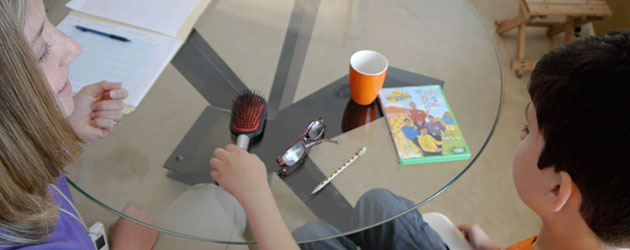Our Approach

AIMS focuses on individualized student plans that measure daily learning. We conduct a baseline assessment and start with the fundamentals, ensuring mastery of foundation skills before moving to more difficult content. Students become fluent: they are able to perform a skill quickly, accurately, and with confidence.
Below are examples of big skills, followed by foundation skills necessary to master them.
| Long Division Problem | Playing Kickball | Cleaning Dinner Dishes |
|---|---|---|
| • Number Identification | • Balance on one leg | • Hold objects of varying weights |
| • Subtraction | • Move leg forward in straight line | • Place objects gently on hard surface |
| • Multiplication | • Bring leg back to starting position | • Move arms up/down and side to side |
| • Place Value | • Regulate force of kick | • Walk while holding objects |
| • Direct the ball | • Balance objects | |
| • Recognize sink/dirty dishes |
For each of the examples above, we make sure the student can perform all prerequisite skills fluently before advancing to the next level.
Getting Started
The AIMS team assesses the needs of the learner and develops an instructional plan specifically tailored to those needs.
Building knowledge and skill mastery
AIMS utilizes Direct Instruction combined with mastery practice. Direct Instruction is a teaching technique that is fast, efficient, and fun for the student. Students learn skills to fluent levels before moving on to more complex material.
Example: Correctly completing 50 math facts in 1 minute versus struggling through 5 math facts in one minute.
Monitoring and evaluating progress
AIMS staff tracks learner performance daily on each skill taught and practiced, collecting and recording all data. If the learner stops making progress on any skill, our team analyzes the performance data and determines the appropriate instructional changes. Each student learns to read his/her own data and becomes an active participant in the learning process.
Creating a strategic plan
AIMS will help identify and establish long term goals for each student. We will keep track of all the skills necessary to get to that goal and be with you every step of the way.
Example: I want my child to play basketball, but currently he has trouble holding on to objects. AIMS would work on the foundation skills necessary to play basketball such as wrist, elbow, and shoulder movements, torso strength and leg coordination. We'll then work on the peer interaction skills necessary to be part of a team.
